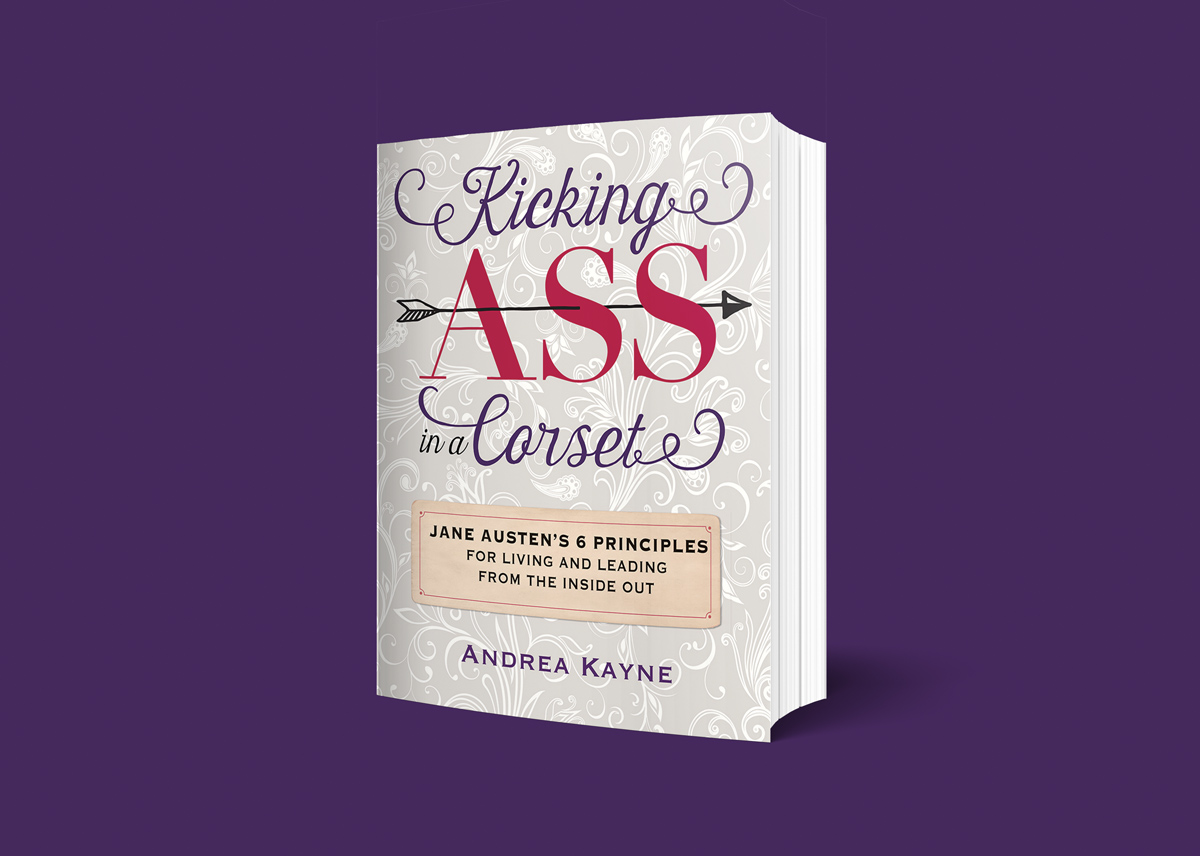


How Women Can Channel Their Inner Jane Austen to Overcome Leadership Constraints
t is a truth universally acknowledged that women in want of strong leadership skills often face difficulties in their endeavors.
Or so Jane Austen might say.
Thus, Andrea Kayne L’93, a self-described “complete Jane obsessive freak,” was delighted during a 2016 Jane Austen convention in Washington, D.C., when she had a revelation.
She was sitting in a restaurant with a fellow “Jane-ite” friend. “I told her Jane Austen just so crystallizes my interests in leadership and interests in women in corporate culture,” Kayne said of her “aha” moment. “Honestly, it was a back-of-the-napkin list.”
She’s referring to the list of Austen heroines she details in her book, Kicking Ass in a Corset: Jane Austen’s 6 Principles for Living and Leading from the Inside Out, to be published in September by The University of Iowa Press.
“Jane Austen heroines, who have very little external agency and who are so devalued and constrained by their society — I found each one of them was able to tap into this internal superpower, which was a way of looking at herself and situation … and claim a kind of power over that situation,” Kayne said. “I thought, oh my God, the six main novels show six different attributes of what I’m calling ‘internally-referenced leadership.’”
Kayne knows effective leadership: She is Director of the Leadership Program at DePaul University’s College of Education, where she has taught as an associate professor for the past 20 years. She’s also a member of the Dean’s Leadership Council at the Harvard Graduate School of Education.
Each principle for “internally-referenced leadership” is embodied in a specific Austen character, Kayne asserts: Elizabeth Bennet (Pride and Prejudice) knows her worth; Elinor Dashwood (Sense and Sensibility) is resilient; Anne Elliott (Persuasion) has a robust work ethic; Fanny Price (Mansfield Park) possesses a strong moral compass; Catherine Morland (Northanger Abbey) lives joyfully and full of hope; and Emma Woodhouse (Emma) learns the value of humility.
A keynote talk she gave at the Women in Educational Leadership Conference at the University of Nebraska inspired her to write the principles into a book. The speech was a hit, she said, even among women unfamiliar with Austen’s works.
Her all-time favorite Austen heroine is Elizabeth Bennet of Pride and Prejudice, and in her book, Kayne focuses on Bennet’s refusal of Mr. Darcy’s first marriage proposal.
Kayne teaches Bennet’s refusal as a personal Best Alternative to a Negotiated Agreement (BATNA), drawing from lessons she learned about negotiation at Penn Law.
“It’s funny, I teach negotiation, … and it’s hard to show a personal BATNA (example), but when I use Elizabeth Bennet and the ‘You’re the last man in the world I’ll ever marry’ line, it becomes really clear to people,” she said.
Kayne teaches a course on the principles from Kicking Ass in a Corset in addition to a related coaching program. “The corset is this metaphor for constraints that leaders, especially women leaders, face, whether it’s harassment or sexism or the imposter syndrome, or having to prove themselves in ways that their counterparts just don’t,” she said.
She hopes the book speaks to women in the workplace and those interested in women’s empowerment.
“I tried to make a book that’s very practical and accessible and has exercises that are portable that we could utilize every day and make a difference,” Kayne said. “I really hope that people are able to tap into the power that they already have but may just need to be reminded of it.”